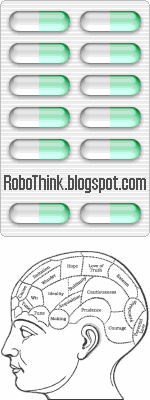Bitter Pills in Medical School
OB-GYN News, a twice-monthly newspaper for obstetricians and gynecologists, reported a study that was presented at the annual meeting of the Society of Behavioral Medicine (OB-GYN News, July 1, 2003). The study by Dr. J. Kenneth Arnette presented 244 undergraduates at Eastern Washington University with one questionnaire about their career plans and two questionnaires to assess their level of empathy. Students were divided into into seven groups according to their career goals: mental health; education; allied health professions; medical professions; business; science; and law. Significant differences were found on the emotional empathy scale. People planning medical careers were less empathetic than those planning careers in nonmedical mental health or education.
Dr. Arnette said his study built on others showing that progressing through medical school, internship, and residency seems to have a detrimental effect on an individual's level of empathy. He suggested that an assessment of personality characteristics and motivation should become a more critical part of the medical school admissions process: "perhaps medical training should become more humanistic, so people don't get chewed up and spit out by the system." There are plenty of references to similar research studies in the Journal of the American Medical Association.
Michael Greger, MD, graduated with honors from Tufts University School of Medicine in the class of 1999. He wrote a book about the experience, which is available online: Heart Failure - Diary of a Third Year Medical Student. He says:
Dr. Arnette said his study built on others showing that progressing through medical school, internship, and residency seems to have a detrimental effect on an individual's level of empathy. He suggested that an assessment of personality characteristics and motivation should become a more critical part of the medical school admissions process: "perhaps medical training should become more humanistic, so people don't get chewed up and spit out by the system." There are plenty of references to similar research studies in the Journal of the American Medical Association.
Michael Greger, MD, graduated with honors from Tufts University School of Medicine in the class of 1999. He wrote a book about the experience, which is available online: Heart Failure - Diary of a Third Year Medical Student. He says:
"I saw medicine as a humanistic career of intimacy - helping people, sharing, caring for people. But what I found was a profession that didn't seem to care about people. No one around me seemed to question what was happening to them, to the patients, to all of us."Related blog articles:

<< Home